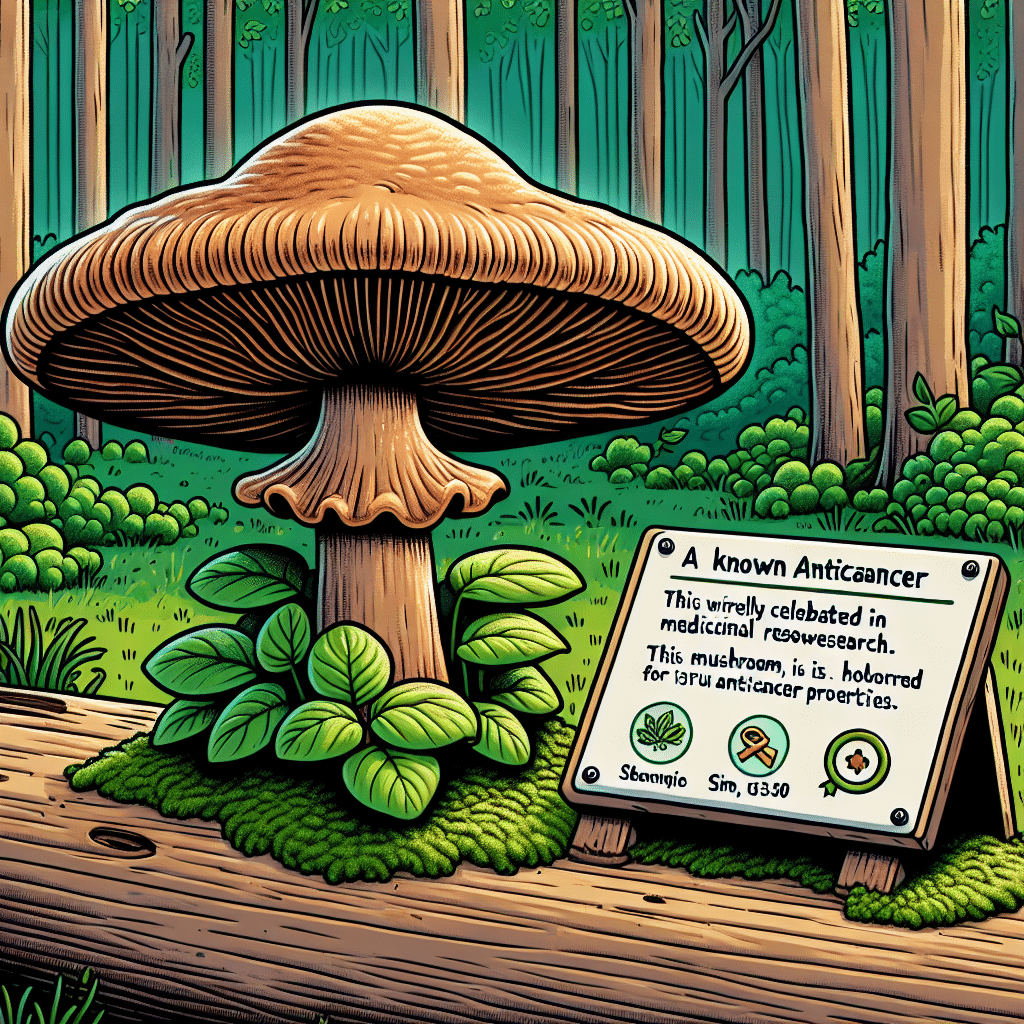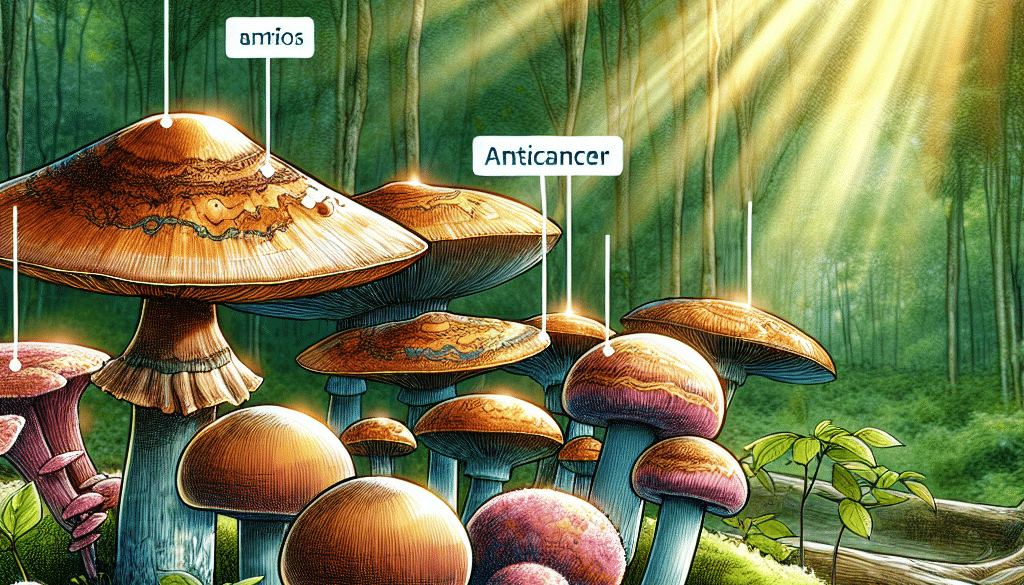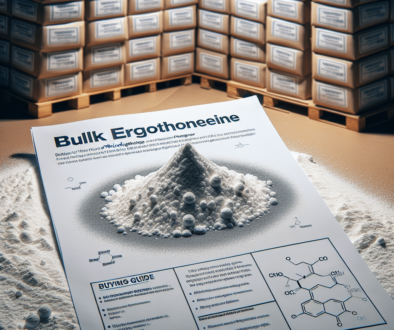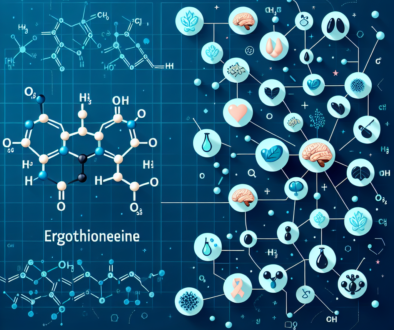Which mushroom is anticancer property?
-
Table of Contents
- Exploring Mushrooms with Anticancer Properties: A Deep Dive
- The Power of Fungi: Mushrooms in Cancer Research
- Reishi Mushroom: The Longevity Herb
- Shiitake Mushroom: Lentinan’s Role in Cancer Therapy
- Maitake Mushroom: A Natural Immune Booster
- Turkey Tail Mushroom: Supporting Immune Health
- Chaga Mushroom: The Diamond of the Forest
- Agaricus blazei: A Brazilian Native with Potential
- Cordyceps: The Caterpillar Fungus
- Case Studies and Clinical Trials
- Statistics and Current Research
- Conclusion: Mushrooms as a Complementary Approach to Cancer Treatment
- Discover ETprotein’s High-Quality Protein Products
Exploring Mushrooms with Anticancer Properties: A Deep Dive

Cancer remains one of the most challenging diseases of our time, with millions of people affected worldwide. The search for effective treatments is ongoing, and in recent years, there has been a growing interest in the potential anticancer properties of mushrooms. Traditional medicine has long used fungi for their health benefits, and modern science is now exploring these claims more rigorously. In this article, we will delve into the specific types of mushrooms that have shown promise in the fight against cancer, supported by scientific research and studies.
The Power of Fungi: Mushrooms in Cancer Research
Mushrooms are a diverse group of organisms that have been used for their medicinal properties for centuries. They contain a variety of bioactive compounds that can potentially influence cancer cells and the body’s immune response. Some of the most well-researched mushrooms with anticancer properties include:
- Reishi (Ganoderma lucidum)
- Shiitake (Lentinula edodes)
- Maitake (Grifola frondosa)
- Turkey Tail (Trametes versicolor)
- Chaga (Inonotus obliquus)
- Agaricus blazei
- Cordyceps
Reishi Mushroom: The Longevity Herb
Reishi mushroom, also known as “Lingzhi,” has been revered in Asian cultures for its health-promoting effects. Studies have shown that Reishi contains triterpenoids, polysaccharides, and peptidoglycans, which may contribute to its anticancer activity. These compounds can induce apoptosis (programmed cell death) in cancer cells, inhibit cell proliferation, and modulate the immune system.
Shiitake Mushroom: Lentinan’s Role in Cancer Therapy
Shiitake mushrooms are not only a popular culinary ingredient but also a focus of cancer research due to the presence of lentinan, a beta-glucan. Lentinan has been studied for its potential to enhance the immune response and to act as a biological response modifier. Clinical trials in Japan have investigated lentinan as an adjunct therapy for cancer, showing potential benefits in extending the survival of patients with gastric cancer.
Maitake Mushroom: A Natural Immune Booster
Maitake mushrooms contain beta-glucans, which may stimulate the immune system and inhibit the growth of cancer cells. Research suggests that maitake can enhance the activity of natural killer cells and cytokines, which play roles in the body’s defense against tumors.
Turkey Tail Mushroom: Supporting Immune Health
Turkey Tail is rich in polysaccharopeptides, including polysaccharide-K (PSK) and polysaccharide-peptide (PSP), which have been studied for their immunomodulatory effects. PSK is an approved adjuvant for cancer therapy in Japan and is used to improve the survival rates of patients with various types of cancer.
Chaga Mushroom: The Diamond of the Forest
Chaga has been used in folk medicine for its purported health benefits. It contains a high amount of antioxidants and betulinic acid, which has been shown to induce apoptosis and inhibit the growth of cancer cells in laboratory studies.
Agaricus blazei: A Brazilian Native with Potential
Agaricus blazei is a mushroom native to Brazil and is used in traditional medicine for its purported health benefits. It contains polysaccharides, such as beta-glucans, which may have immunostimulating and anticancer effects. Studies have suggested that Agaricus blazei can stimulate the immune system and may have therapeutic potential against cancer.
Cordyceps: The Caterpillar Fungus
Cordyceps is a genus of parasitic fungi that grows on insect larvae. It has been used in traditional Chinese medicine for centuries and contains various bioactive compounds, including cordycepin. Research indicates that cordycepin may have antitumor effects by inhibiting cell proliferation and inducing apoptosis in cancer cells.
Case Studies and Clinical Trials
Several clinical trials and case studies have provided insights into the potential anticancer effects of mushrooms. For instance, a study on breast cancer patients found that the consumption of mushroom extract improved the immune response and potentially reduced the recurrence of cancer. Another study on colorectal cancer patients suggested that the intake of mushrooms might be associated with a lower risk of cancer progression.
Statistics and Current Research
According to the American Cancer Society, there are ongoing studies to better understand the role of mushrooms in cancer prevention and treatment. While the evidence is promising, more large-scale, randomized clinical trials are needed to establish the efficacy and safety of mushroom-derived compounds as anticancer agents.
Conclusion: Mushrooms as a Complementary Approach to Cancer Treatment
In conclusion, various mushrooms have shown potential anticancer properties in scientific studies. Compounds such as polysaccharides, triterpenoids, and beta-glucans found in mushrooms like Reishi, Shiitake, Maitake, Turkey Tail, Chaga, Agaricus blazei, and Cordyceps may contribute to their ability to modulate the immune system and inhibit cancer cell growth. While these findings are encouraging, mushrooms should be considered as a complementary approach to conventional cancer treatments, and individuals should consult healthcare professionals before using them for medicinal purposes.
Discover ETprotein’s High-Quality Protein Products
If you’re looking for high-quality protein products that align with a health-conscious lifestyle, consider ETprotein’s offerings. Their range of organic bulk vegan proteins and L-(+)-Ergothioneine (EGT) products are designed to meet the needs of various industries, including nutraceuticals and health supplements. With a commitment to non-GMO, allergen-free ingredients, and high purity levels, ETprotein is a trusted source for your protein needs.
About ETprotein:
ETprotein, a reputable protein and L-(+)-Ergothioneine (EGT) Chinese factory manufacturer and supplier, is renowned for producing, stocking, exporting, and delivering the highest quality organic bulk vegan proteins and L-(+)-Ergothioneine. They include Organic rice protein, clear rice protein, pea protein, clear pea protein, watermelon seed protein, pumpkin seed protein, sunflower seed protein, mung bean protein, peanut protein, and L-(+)-Ergothioneine EGT Pharmaceutical grade, L-(+)-Ergothioneine EGT food grade, L-(+)-Ergothioneine EGT cosmetic grade, L-(+)-Ergothioneine EGT reference grade and L-(+)-Ergothioneine EGT standard. Their offerings, characterized by a neutral taste, non-GMO, allergen-free attributes, with L-(+)-Ergothioneine purity over 98%, 99%, cater to a diverse range of industries. They serve nutraceutical, pharmaceutical, cosmeceutical, veterinary, as well as food and beverage finished product distributors, traders, and manufacturers across Europe, USA, Canada, Australia, Thailand, Japan, Korea, Brazil, and Chile, among others.
ETprotein specialization includes exporting and delivering tailor-made protein powder and finished nutritional supplements. Their extensive product range covers sectors like Food and Beverage, Sports Nutrition, Weight Management, Dietary Supplements, Health and Wellness Products, and Infant Formula, ensuring comprehensive solutions to meet all your protein needs.
As a trusted company by leading global food and beverage brands and Fortune 500 companies, ETprotein reinforces China’s reputation in the global arena. For more information or to sample their products, please contact them and email sales(at)ETprotein.com today.












